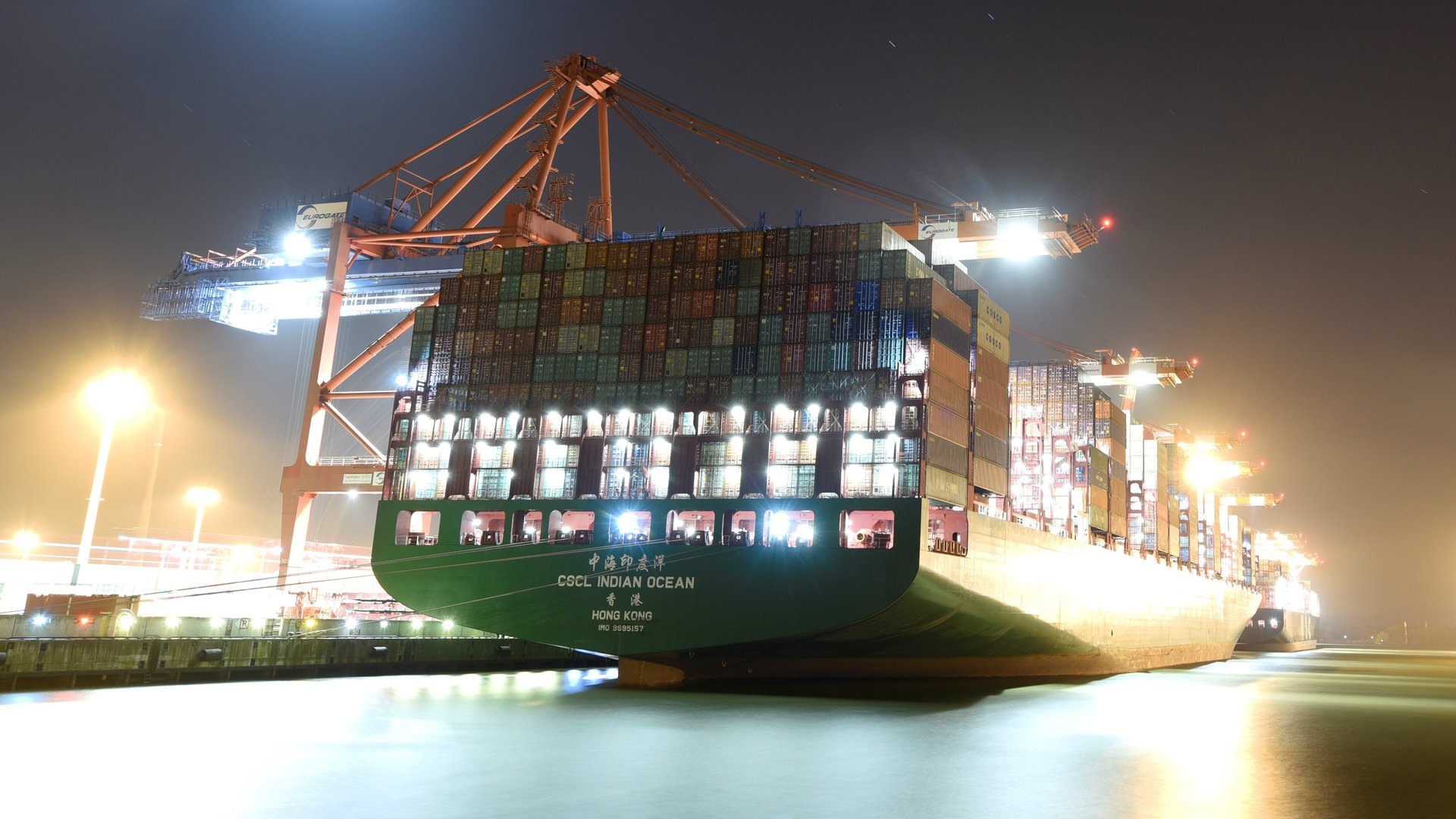The Stanford economist who won the latest “Baby Nobel” explains the biggest flaws in anti-free trade arguments
Stanford economist Dave Donaldson, the 2017 winner of the John Bates Clark Medal (also known as the ”Baby Nobel“), studies one of the hottest topics in economics: the effects of international trade. Amid Donald Trump’s blustery tirades against free trade, Donaldson’s measured and contemplative manner of speaking about the pros and cons of international commerce stands out in its own way.


Stanford economist Dave Donaldson, the 2017 winner of the John Bates Clark Medal (also known as the ”Baby Nobel“), studies one of the hottest topics in economics: the effects of international trade. Amid Donald Trump’s blustery tirades against free trade, Donaldson’s measured and contemplative manner of speaking about the pros and cons of international commerce stands out in its own way.
The Clark Medal is annually awarded to the American economist under 40 who has “made the most significant contribution to economic thought and knowledge.” Several past winners have gone on to win the Nobel Prize in economics, including Milton Friedman (1951), Kenneth Arrow (1957), Joseph Stiglitz (1979), and Paul Krugman (1991).
Donaldson’s work focuses on the impact of lowering trade barriers, both within and between countries. Today, we typically think of promoting trade via free trade deals, but, historically speaking, improved transportation was a more important way to increase cross-border exchange. Donaldson’s most important research examines the effects of transportation investments to test theories from classical economics about the benefits of trade.
Donaldson spoke with Quartz last year. The conversation has been edited and condensed for clarity.
Quartz: Your most well-known research addresses the effects that the introduction of the Indian railroad system had on trade. Can you explain a bit about what you found?
Donaldson: I wanted to study an economy or a country where they had experienced a dramatic change in the ability to trade from one part of the country to the other. I got interested in India because this was clearly a setting where there was a dramatic change in the ability to move goods.
In 19th-century India, these colonial rulers came in, and over the space of like 30 years, built this immense railroad system using, at the time, the world’s leading technologies. The really exciting thing about India was the availability of good data on exactly the variables I wanted to study—like the flow of goods between regions and the prices and quantities of goods produced.
The headline number of that research is that, for villages near the railroad, they gained something like an extra 20% in gross domestic product, compared to those that did not. Later, we studied the impact of the introduction of railroads to the US and found that the effects there were even larger.
But perhaps even more important was the way the railroads made incomes less volatile and reduced the risk of famine.

Why is that?
Here are the simple economics of it: Imagine only firms in one region can sell you something, like wheat. Now imagine that whole region is hit by a bad harvest because of a lack of rainfall. Naturally, the price will rise because there is so little supply.
Now imagine there is some other region that might supply you that wheat, but that other region is sufficiently far away that they did not experience that bad rainfall. If they have extra wheat, they could sell to to the village hit by the bad harvest.
Economic models predict the more places you are connected to, and at lower cost of transport, the lower price volatility should be. And that’s what we found. Once villages had access to the railroads, the effect of bad harvest on price was close to zero, where it had been quite large before, and famines became less common.
So taking a wider view, does your research imply that economic integration and globalization should have a similar impact reducing volatility today?
Perhaps. But of course, extrapolating from any given case study to another point and time in space is always going to be fraught. That’s why economists like me, when we take up a particular case study, we try to use it to test the most basic notions of how markets work, that are likely to be portable from one setting to another.
In this case, I do think it is probably true that trade decreases volatility, and exposure to things like famine, but some preeminent economists, like Amartya Sen, disagree that this is always true.
International trade has come under fire recently. As a trade economist, how fair do you find these criticisms?
Economists have known for a long time that virtually any economic change you can imagine—and trade is no exception—will produce winners and losers. Whenever there are three actors, bilateral exchange between two of them is probably going to hurt the third. For example, when a reader reads Quartz, they are kind of harming the journalists at Slate.
Trade is no different. When some American consumer decides to buy their furniture from China instead of a factory in North Carolina, that is a trilateral setting where that trade is going to have a bad consequence for the workers and owners of that factory in North Carolina. So if a government enables trade or liberalizes trade with China and allows that consumer to make that choice then the consumer is going to be a winner from that, and the domestic producer is going to be a loser.
But economists have always had the theoretical and empirically grounded belief that economic integration ends up helping the winners more than it hurts the losers.
Of course, that statement doesn’t help someone who is harmed. It probably just adds insult to the wound. But at least it puts out the possibility that the winners could compensate the losers, and compensate them fully.
What do you think your work has to say specifically about anti-trade arguments?
There are two things that come to mind.
One, it’s always puzzled me that, in the public debate about trade, we never talk about why we are so keen to promote trade between US states. In fact, we have entire branches of government dedicated to promoting domestic competition and enable state to state trade. And our work shows that the gains from this kind of trade are large.
Yet, if one of those states wants to buy from a foreign land, it is somehow different? In reality, there is absolutely nothing fundamentally different about international trade versus intranational trade. I don’t think there are good reasons, at a logical level, to favor one and not the other.
The second point: If trade is bad, why do we think it’s good to enable trade via infrastructure projects, like building railroads and highways, and improving our ports? They are incredibly costly and their main goal is to promote trade. Why is it that we are happy with those investments in transportation, and not happy with trade agreements? I have tried to show in my work that those are fundamentally the same thing.
You might make the point that those same ports are used for exports too. But that brings us to a subtle point about trade that tends to be underappreciated: In the long run imports and exports have to be equal. If they are not, someone is getting gifts.
These two points suggest to me that, deep down, people know that it’s folly to impede trade.